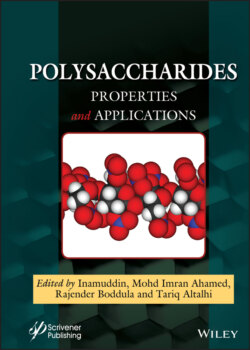Читать книгу Polysaccharides - Группа авторов - Страница 73
3.4.2.3 Alginates
ОглавлениеAlginate is used as food additive in the form of its salts (Na, K, NH4, Ca, propan-1,2-diol). Because of its emulsifying nature, sodium alginate is used as a can-sealing compound and stabilizer. Alginate propylene glycol used for salad dressings and butter is an emulsion stabilizer [129].
With its gelling ability, alginates are used for encapsulation and immobilization of volatile molecules like fats and flavors. Alginate is also ideal for entrapment of enzymes and probiotics in supplements, such that an adequate number of beneficial microbes are delivered directly to the human gut. Alginates can increase the survival chances of the microbes during food storage as well as the extreme conditions in stomach and small intestine. Alginates have the innate ability to form transparent gels at room temperatures. With the current focus on replacing nonbiodegradable or non-recyclable food packaging, alginates can have wide applications in food coatings. The anti-microbial activity can also help in their use as coatings for vegetables, fruits, fish and meat products to act as a barrier against surface spoilage. Alginates also adsorb heavy metal ions, with a particular affinity for Pb2+, critical for developing special foods for children with high blood Pb2+ content [130]. The gelling ability of alginates is used to make restructured foods, particular from non-appealing ones [131].
